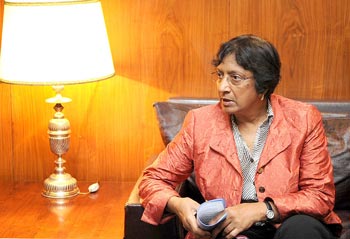
The UN high commissioner for Human Rights has called for the UAE to relax its attitude towards expatriate jobseekers requiring a sponsor.
The commissioner, Navi Pillay, says that she would like the UAE to abandon the system that leaves foreign workers essentially handcuffed to their sponsor. Foreign workers are unable to seek other employment should their employment be unsatisfactory, and in some cases they are even becoming victims of abuse.
Ms Pillay spoke in Abu Dhabi and told reporters that “The GCC region is unique in that in some countries, especially the UAE and Oman, the number of migrant workers far exceeds the number of national citizens. Many problems have arisen through a lack of safeguards in the sponsorship system that leaves migrant workers vulnerable to exploitation in an unequal power relationship with their employers”.
To gain employment in the UAE a person must find a ‘sponsor’. This sponsor then becomes completely responsible for all aspects of the individual’s life including accommodation and welfare. Once with a sponsor the individual is not allowed to change jobs, and in most cases the sponsor will take possession of the individual’s passport.
Most white collar workers will only see the ‘handcuff’ as a slight, for chances are that they will be given an attractive salary and living arrangements, however it’s the vast number of workers who flock to Dubai for roles such as housekeeping and labour who become susceptible to abuse. In some instances there have been reports of severe overworking and minimal pay.
Recently the region of Bahrain abolished the sponsor scheme, and Ms Pillay hopes that the rest of the UAE will follow suit, she added “Many problems have arisen through the lack of protection safeguards in the so-called 'kafala' or sponsorship system that leaves migrant workers vulnerable to an unequal power relationship with their employers”.
“Bahrain - has recently abolished the ‘kafala’ system and adopted a new labour law and visa system, I hope this important model can be replicated in all the other GCC countries”.
Under the proposed new rules employee/employer relations would be much more even handed, and employees would have the power to seek new employment should they wish to, they will keep possession of their passports and also there will be a minimum wage set in place.

